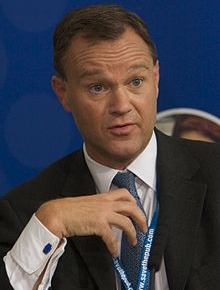Archive for September 6th, 2012

Youth training programme returns to roots
(CNS): Following its divergence recently to assist various social demographic groups struggling to find work Passport2Success returned to its roots this week when the education and employment ministry programme started a new course for 25 17-20 year olds. Launched by the Education Ministry in 2010, Passport2Success has had an impressive record of helping unemployed youth to tackle barriers that have kept them from getting and maintaining jobs. A locally-developed programme, it provides a unique blend of skill-development with personal and group counselling, work experience, community service, and a focus on personal development, attitudinal change and work readiness.
Having developed an excellent reputation in the business community it now has some 55 companies providing some form of support in the last four cohorts by either sponsoring the program, guest speaking to the participants, providing site visits so participants can see how different businesses operate and/or work experience placements.
The programme has seen 157 young Caymanians graduate through the course out of 186 that originally started the programme a success rate of 84%. Currently 78 – 50% of those graduates are either employed or in an internship, and 37 graduates, almost a quarter are either attending school or seeking further education.
This year financial year Passport2Success will offer two programmes for young people aged between 17-20 with the second one starting in April 2013 and a third course will begin in January for Caymanian Single Mothers.
As the new students started the course Monday the education minister said the programme was modelled on real life, where participants who don’t follow the rules and make the effort to improve will be asked to leave.
“Just like in real life, if you do something wrong, there are consequences,” Rolston Anglin stated.

$2.65M taken from pensions
 CNS): Government officials have revealed that 137 Caymanians have withdrawn a total of $2.65 million from their pensions in order to buy or build a home, purchase land or pay off mortgages under an amendment to the pensions law last year. This falls far short of the claim made backbench MLA Ellio Solomon recently that some $17 million had been injected into the economy as a result of the law, which grew from a motion filed by the former radio talk-show host in 2010. Government amended the pension law just short of a year ago to allow locals with private sector pensions to take up to $35,000 from their pension fund and invest the money in property.
CNS): Government officials have revealed that 137 Caymanians have withdrawn a total of $2.65 million from their pensions in order to buy or build a home, purchase land or pay off mortgages under an amendment to the pensions law last year. This falls far short of the claim made backbench MLA Ellio Solomon recently that some $17 million had been injected into the economy as a result of the law, which grew from a motion filed by the former radio talk-show host in 2010. Government amended the pension law just short of a year ago to allow locals with private sector pensions to take up to $35,000 from their pension fund and invest the money in property.
Solomon now says he intends to file a similar motion calling for civil servants to withdraw cash from their Public Service Pension Fund, which may prove considerably more difficult.
The data regarding how many people in the private sector have used the facility and for what comes directly from the new Department of Labour and Pensions, which showed that 50% of the $2.65 million withdrawn by locals from private sector pensions was spent by 78 applicants on the purchase of a home, while almost one million dollars was spent on paying off 36 existing mortgages. Seventeen applicants used just under $300,000 to construct a home and a further six applicants spent $98,000 on land.
The release of the information is part of a commitment to improve the department’s systems, databases and other methodologies to ensure the timely and accurate delivery of information and technical support to its stakeholders, the department's director, Mario Ebanks, said in a release.
“Statistics such as these, dealing with withdrawals from pension plans for worthy socio-economic causes in accordance with the law, will be released regularly and at least on a quarterly basis,” Ebanks stated. “Subject to funding, the department will enhance its databases, website, and generally leverage technology in order to achieve high quantitative and qualitative outputs.”
The information comes ahead of an expected debate in the Legislative Assembly in the coming weeks on the sequel motion which Solomon plans to file that will allow civil servants to do the same thing from the public service pension. Speaking on Cayman 27 last week, the George Town MLA admitted that there may be some resistance in the higher echelons of the civil service to the motion but he believed he had wide support for it.
However, allowing public sector workers to raid their pensions may prove much more complex, given the problems government is already facing with its liability for millions and millions of dollars towards future pensions that will need to be paid out to civil servants who have yet to retire but are entitled to do so on a fixed income.
There are concerns, too, over the damage caused to a long term investment by withdrawing a significant sum mid-way through, which has not been fully explained to those that have taken up the chance of what may feel like a cash windfall twenty years away from retirement but may place those pensioners in future poverty.
Last year a number of pension firms warned that such a $35,000 withdrawal could have a devastating impact on the final funds pensioners will be faced with when they retire and the dangers that they will then become a burden to the state. Solomon argues that those trapped in rental property when they retire will have to spend a large portion of their pension on rent but if withdrawing a sum of cash before retirement will help them to buy a home, in the long run a smaller pension may not be so much of a problem.
Under the law, those who have used their pension for a home are required to pay additional contributions of 1% and if they sell the property before they retire they will need to pay back the full amount of what is being considered a loan from the scheme.

Regulator approves new CUC feed-in tariffs
 (CNS Business): Customers of Grand Cayman’s sole power supply company, CUC, can now generate energy from renewable and alternative sources and be compensated through stable, long-term rates through their Consumer-Owned Renewable Energy (CORE) Generation Programme. The Electricity Regulatory Authority of the Cayman Islands (ERA) announced this week that it has approved revisions to the existing Feed-in Tariffs (FITs), which has been in place since 1 February 2011. Under the FIT programme, the rates paid to customers for all renewable energy generated will be CI 38.5 cents per kilowatt hour for residential customers and CI 37.5 cents per kWh for commercial customers. Read more on CNS Business
(CNS Business): Customers of Grand Cayman’s sole power supply company, CUC, can now generate energy from renewable and alternative sources and be compensated through stable, long-term rates through their Consumer-Owned Renewable Energy (CORE) Generation Programme. The Electricity Regulatory Authority of the Cayman Islands (ERA) announced this week that it has approved revisions to the existing Feed-in Tariffs (FITs), which has been in place since 1 February 2011. Under the FIT programme, the rates paid to customers for all renewable energy generated will be CI 38.5 cents per kilowatt hour for residential customers and CI 37.5 cents per kWh for commercial customers. Read more on CNS Business

Mental health failings persist
 (CNS): More than three years after the complaints office exposed the government’s failure to meet the requirements of its own law in regard the treatment of mental health patients, some of them are still being housed in jail when they present a danger to themselves or others. Following up on the ministry’s substantial failure to follow the recommendations of the office, made in 2009, Commissioner Nicola Williams has made public a special report detailing those failures and highlighting the serious legal problems that the Cayman government could face regarding its treatment of the mentally ill.
(CNS): More than three years after the complaints office exposed the government’s failure to meet the requirements of its own law in regard the treatment of mental health patients, some of them are still being housed in jail when they present a danger to themselves or others. Following up on the ministry’s substantial failure to follow the recommendations of the office, made in 2009, Commissioner Nicola Williams has made public a special report detailing those failures and highlighting the serious legal problems that the Cayman government could face regarding its treatment of the mentally ill.
The most recent Special Report follows up on an Own Motion Investigation published by the pervious commissioner, DrJohn Epp, in September 2009. The issue in question remained the problem of where those who present a danger to themselves and others because of their mental health condition were housed. Epp found that people suffering from mental health problems were being jailed at Fairbanks on an ad hoc basis instead of being house in what could be described as a safe place. Following his investigation, Epp recommended that a place of safety was properly defined and designated to comply with the Mental Health Law.
However, some three years later, nothing of substance has been done and according to Williams, despite the office’s continued monitoring and extensive correspondence with the health ministry’s chief officer and others, the problem has not been addressed. Mental health patients in Cayman are still being jailed even though they have not committed any crime.
Williams pointed to a number of problems that such a situation presents, from the failure of the authorities to address the needs of the patients to the human rights implications of the government failing to comply with the law and subsequent recommendations of the OCC. Despite some 30 months of correspondence and the establishment of a Mental Health Task Force in 2010 which drew up a draft change to the law, nothing has been done to address the problem of incarcerating the mentally ill.
The issue has been highlighted by numerous experts over the years and has featured as the subject of key reports
In 2009 the late William Rattray, who served as the commissioner of corrections, pointed out that prisons are not mental health hospitals.
“The prison officers, while trained in interpersonal skills and physical restraint, if necessary, are not mental health nurses. Consequently, it is my view that is not adequate as a place of safety for mental health patients who have not been committed to prison as an untried prisoner, waiting for sentence or sentenced to imprisonment by a court,” he told Epp during his original report. “Imprisoning someone on the grounds that they have a mental health problem but have committed no offence is a violation of their human rights,” Rattray added.
The chief medical officer at the time had also pointed out that the ad hoc approach to mental health patients in danger and the use of Fairbanks was in appropriate. Epp’s report threw up a number of major issues, not least the violation of the rights of the mentally ill and their false imprisonment. But the fact that Fairbanks appeared to be the only place where patients could be accommodated was not, the OCC found, a lawful excuse.
However, despite the seriousness of the problem, efforts to address it appear to have failed and Williams was forced to issue the Special Report as a result of the ministry’s non-compliance.
“Special Reports are only prepared and issued by this office where there is serious and protracted non-compliance,” Williams said Wednesday. “As evidence of the seriousness of this matter, the OCC is required by law to provide the Governor with a copy of the Special Report before it is laid before the Legislative Assembly. This was done on 5 April 2012. The decision to issue a Special Report, provide a copy of same to the Governor, and lay it before the Legislative Assembly is not one that is taken lightly. This is the first Special Report I have had cause to issue since my appointment as Commissioner,” she added.
In the report, the health ministry's chief officer, Jennifer Ahearn, denied that the ministry had made no progress on the issue and stated that the task force had been “working diligently and continuously”.
In her last correspondence with the OCC in April of this year, the chief officer said that the task force continued on with the draft legislation and the need to designate a “place of safety” but made it clear that with the legislative department’s workload and the now imposed financial constraints on government further delays were to be expected.
CNS has contacted the ministry and is awaiting a response.
OCC Special Report 24 April 2012 – Re: Mental Health and Place of Safety tabled 22 Oct 2009

National bird faces extinction
 (CNS): The Cayman parrot is facing a combination of threats which an international expert says could see the bird extinct within forty years if action is not taken to preserve the habitat the parrots need. Frank Rivera-Milán from the US Fish and Wildlife Service has been counting parrots in the Cayman Islands since Hurricane Ivan in 2004. During a presentation of his work here over the last eight years, Rivera-Milán issued a stark warning about the national birds and the threats they face which could in the face of another catastrophic event see them disappear.
(CNS): The Cayman parrot is facing a combination of threats which an international expert says could see the bird extinct within forty years if action is not taken to preserve the habitat the parrots need. Frank Rivera-Milán from the US Fish and Wildlife Service has been counting parrots in the Cayman Islands since Hurricane Ivan in 2004. During a presentation of his work here over the last eight years, Rivera-Milán issued a stark warning about the national birds and the threats they face which could in the face of another catastrophic event see them disappear.
Speaking at the Department of Environment on Wednesday, the bird expert noted the local parrots' recovery in the wake of both Hurricanes Ivan and then Paloma on the Brac, which demonstrated their relative resilience to face what nature throws at them, but the birdsare struggling in the face of hunting and development.
He pointed to the population on Cayman Brac, which is a sub species and on its evolutionary way to becoming a species of its own, but is at particular risk because of the rapid development of roads and subdivisions on the Brac that are destroying its already very limited habitat.
“Cayman Brac is going down the drain as development is going too fast,” Rivera-Milán warned as he pointed to the significant amount of clearance of the birds’ habitat in the last few years. He warned that there are an estimated 465 parrots left on the island but only 66 breeding pairs. He explained the rest of the birds are known as 'floaters', which are not yet producing offspring.
While the breeding pairs have remained relatively constant over the last 20 years, the decline in floater numbers, which would replace any loss of breeders, is a significant problem for the future population if there was to be another major storm, he said.
“We are losing floaters and once that starts to happen extinction is not very far away. We have a very volatile situation with the parrot population,” he warned.
The situation on Cayman Brac is compounded by the significant lack of habitat which is suitable for parrots. The birds colonize only around 4,000 hectares of the island, so even when a small amount of the trees and scrub where the birds live, and more importantly nest, are removed their survival becomes ever more tenuous.
Warning that the birds could be gone in less than four decades, he said the government needed to intervene with management policies, such as preserving existing nesting areas and breeding hot-spots, introducing nesting boxes, as well as preserving and planting key food sources for the parrots and enforceable legislation to protect them from trapping and hunting.
“The more habitat that is lost, the more the recovery from the storms is hampered,” he said, adding that there seemed to be no need in many cases for the development of such large roads he saw on the bluff during this visit. “The Brac population is literally hanging on. We are really in trouble.”
He lamented that land was stripped bare in order to make subdivision without retaining any of the natural habitat and wondered why the roads accessing sub divisions were so wide. He described the new public highway to the Agricultural Pavilion as more fitting for a major US city than the tiny island. The impact on the habitat from roads is not just limited to the area cleared but, he explained, it also knocks into that on the edges of the road because of the pollution and wind shear.
Although the national bird is protected under the animals law, wildlife experts here say that legislation has no teeth and that is why the parrots, like the rest of Cayman’s indigenous wildlife, is in desperate need of the National Conservation Law. No one has ever been prosecuted for taking or killing a parrot and there are no statistics revealing how many birds are killed or trapped each year.
In Grand Cayman the bird is considered a pest by many farmers. The pressures of development are driving the birds from their natural habitat into the farms and suburban areas to find food as a result of the dwindling supplies in the wild. Although Rivera-Milán said the food supply on Grand Cayman appeared to be slightly better than on the Brac, the parrots there are still at risk.
The biologist's latest visit was focused on Cayman Brac and so his figures regarding Grand Cayman were, he said, best estimates but he pointed to around 4,000, which included 500 mating pairs. Rivera-Milán warned that these figures were still a major concern given the rate of development and the lack of any meaningful protection.
For the birds on both islands, Rivera-Milán said the habitat loss was dramatic and although it was still possible that both the Grand Cayman and the Cayman Brac parrots could make it, their survival depends very heavily on the will of government to make the right decisions regarding management and put the necessary policies in place to preserve the country’s national bird.

Bellingham gets chop, Simmonds takes on territories
 (CNS): The apparent survival of the overseas territories minister in David Cameron’s Cabinet was short lived as Henry Bellingham was removed from his post when the British Prime Minister continued his reshuffle Wednesday. The responsibility for the territories has been given to Mark Simmonds, the Tory member for Boston and Skegness who was a former shadow health minister. Bellingham, with whom Cayman’s premier has claimed he had a good relationship, does not appear to have been offered another post in the Conservative-led coalition Cabinet. Meanwhile the Foreign Secretary, William Hague, one of the Conservative heavyweights, has retained his top job.
(CNS): The apparent survival of the overseas territories minister in David Cameron’s Cabinet was short lived as Henry Bellingham was removed from his post when the British Prime Minister continued his reshuffle Wednesday. The responsibility for the territories has been given to Mark Simmonds, the Tory member for Boston and Skegness who was a former shadow health minister. Bellingham, with whom Cayman’s premier has claimed he had a good relationship, does not appear to have been offered another post in the Conservative-led coalition Cabinet. Meanwhile the Foreign Secretary, William Hague, one of the Conservative heavyweights, has retained his top job.
The UK government's mid-term shake up is seen by many as David Cameron’s attempt to revive the coalition’s fortunes in the face of continued austerity but is not expected to herald any major changes of policy. Simmonds is one of a number of new appointments considered to be further to the right of the Conservative party.
During Cameron's first cabinet re-jig, George Osborne, the Chancellor of the Exchequer, was booed earlier this week as he handed out medals at the Para-Olympic games but remains at Number 11 Downing Street. UK polls had shown that the British public believes that Osborne, who is a close ally of Cameron, should be sacked.
Despite some speculation in the UK Press that Hague had lost his mojo, he has retained his post after telling the Evening Standard last week that he had wanted to remain in the position.
During the interview Hague told the London-based evening paper that the UK must shed lingering feelings of "post-colonial guilt" and be confident about its status on the world stage.
He said the UK had a "new and equal partnership" with countries unburdened by past history but Britain should be "more ambitious" about its role in the world and should not be held back by worries over any residual resentment overseas about its colonial past.
The foreign secretary’s comments come in the wake of the publication of a white paper regarding the future relationship the UK wants with its existing overseas territories and remaining colonial legacy, which indicates a desire for a much more hands-on approach.
Simmonds, a 48-year-old party loyalist, won his seat in the June 2001 General Election and within 30 months of being elected he was promoted to the front bench as the Shadow Minister for Education.
In September 2004 Simmonds was appointed Shadow Foreign Office Minister by then leader of the Conservative Party, Michael Howard. His work focused on international affairs in the Middle East, Africa, Central and South East Asia, and South America. After his re-election in May 2005 he was made Shadow Minister for International Development, where his role focuses on the important issues of aid, trade and debt.
Simmonds is also Secretary of the All Party Parliamentary Latin American Group.
In July 2007 he was promoted to Shadow Minister for Health when the Conservative Party was in opposition but missed out on a role in the coalition government after the 2010 General Election.
See more about the new minister here
See Simmonds list of responsibilities here

The multi layered costs of addiction
This year’s theme for Recovery Month is "It’s Worth It". When you think about the cost of addiction, you may be forced to think about the amount of money people spend on their actual drug of choice. However, the cost of addiction goes much deeper than that. There are societal costs which rarely get factored into this equation.
These include some or all of thefollowing:
-
If people are unable to hold down steady employment, they or their family may turn to the government for assistance to help meet their needs. The Department of Children and Family Services, which is funded by the government, will bear this cost.
- If people are able to work, and engaging in substance use, their tendency to have reduced production, increased error rates and increased absenteeism incurs costs for the employer which are often, unfortunately, passed on to the public.
-
If people are committing offences to support their addiction and become caught up in the legal system, whether it is just the costs incurred due to court appearances and legal fees, or whether they find themselves on parole, probation or incarcerated, the judicial system, which is also funded by the government, will bear this cost. The cost of maintaining a person in prison has been cited to be in the region of $50,000-60,000 per year.
- Costs are also associated with the victims of the crime. For example, as a result of shop lifting, or robbery, business owners will pass the costs onto consumers in order to maintain their profit margins.
- If people have misused drugs for years their health will inevitably be compromised, and as many are indigent or without insurance, this cost will fall upon government’s health care system. Allied costs can be their absence from work which incurs costs to their employers through sick time and/or absenteeism. In the private sector, these costs are passed on to the consumer.
- Families can be destroyed because of addiction. The costs associated with this can have many layers. Non-using partners may need government assistance if they are unemployed, the partners and children may require counselling due to the emotional and psychological effects of living with addiction in the home, and then there are the emotional costs of all those who care but are unable to help.
- The cost to society with the loss of potentially valuable and contributing members is difficult to gauge, but it is obvious that the benefit from such persons would greatly exceed the value from one who, through their use of substances, has become a non-productive member.
When someone finally reaches out for help, recovery is not without cost either. The government funded agencies that provide services include: The Counselling Centre which provides outpatient treatment programmes, Caribbean Haven Residential Centre where residential treatment services are offered, and The Family Resource Centre which provides parenting, family, and adolescent support.
So yes, recovery has costs, many of which are financial. However, it is, in comparison to ongoing substance use, a short term and sometimes onetime cost.
Once a person has attained recovery, all of the costs associated with the addiction begin to dissipate. Persons who were once a burden to society are now able to secure and maintain employment. They are no longer caught up in the judicial system; instead they are taking better care of their physical health and providing their own health care coverage.
So when we look at all of the costs associated with addiction and compare that with the cost of recovery, we can only come to one conclusion — Recovery…..Because It’s Worth It!
Lynn Robinson is Programme Coordinator at Caribbean Haven Residential Cente.

Over fishing ‘works’ says marine expert
 (CNS): An expert from Bonaire in the southern Lesser Antilles visiting Cayman told local environmentalist that the efforts made in the island to cull lionfish were beginning to work and populations were falling. Giving a presentation about the work in the Dutch territory, Fernando Simal said that concerted and coordinated efforts across the island to enlist the help of visiting as well as local divers, the introduction of lionfish hunts and changes to local laws to allow the use of spearguns to cull the invasive species have all paid off. Simal revealed the results of a comparative study with the neighbouring island of Curacao, where cull efforts had been slower to start and were significantly less than the commitment madein Bonaire. (Photo by Patrick Weir)
(CNS): An expert from Bonaire in the southern Lesser Antilles visiting Cayman told local environmentalist that the efforts made in the island to cull lionfish were beginning to work and populations were falling. Giving a presentation about the work in the Dutch territory, Fernando Simal said that concerted and coordinated efforts across the island to enlist the help of visiting as well as local divers, the introduction of lionfish hunts and changes to local laws to allow the use of spearguns to cull the invasive species have all paid off. Simal revealed the results of a comparative study with the neighbouring island of Curacao, where cull efforts had been slower to start and were significantly less than the commitment madein Bonaire. (Photo by Patrick Weir)
He said the findings were that the lionfish in Bonaire were smaller, weighed less and above all less density.
“As we all know, over-fishing works,” he said, as he pointed to the reduction in the population as a result of deliberate and targeted efforts. While over-fishing is normally seen as a problem for marine experts, the knowledge and evidence from the impact on native fish stocks from over-fishing in the Caribbean would suggest that a concerted effort to fish the invasive species could bring down the numbers of lionfish.
Simal said the fish was promoted in Bonaire as a tasty dish and was now fetching around $14 per kilo which, coupled with the licensing of spearguns for divers hunting the fish, has meant that the cull has worked. The marine expert stated that the population of the invasive fish was almost half that of its neighbouring island and the size of the fish was 33% smaller, which was also positive as smaller fish eat and compete less with indigenous species.
Looking at the situation in Cayman, the Department of Environment marine team said that they were also starting to see some positive effects from the culling efforts. Numbers in areas which are dived regularly are falling but the local experts raised concerns that 100 metres outside the mooring areas the fish were still dense and more efforts were needed to keep up the pressure on the fish.

Jamaica watchdog official victim of failed hit
 (CNS): A member of staff in the Office of the Contractor General (OCG) in Jamaica, which performs a similar role to Cayman's Office of the Auditor General, was allegedly the target of a failed attempt at an execution by a contractor. According to a release from Greg Christie’s office, one of his team was in real danger when gunmen were reportedly recruited to take his life while visiting a particular location on Wednesday morning in Jamaica. Christie has reported the matter to the police and noted that it comes in the wake of threats made by contractors who are attempting to discredit the OCG and its legally mandated work.
(CNS): A member of staff in the Office of the Contractor General (OCG) in Jamaica, which performs a similar role to Cayman's Office of the Auditor General, was allegedly the target of a failed attempt at an execution by a contractor. According to a release from Greg Christie’s office, one of his team was in real danger when gunmen were reportedly recruited to take his life while visiting a particular location on Wednesday morning in Jamaica. Christie has reported the matter to the police and noted that it comes in the wake of threats made by contractors who are attempting to discredit the OCG and its legally mandated work.
The staff member whose life was under threat is one of the officials assigned to the job of interviewing contractors whose applications for re-registration as Government Works Contractors have been withdrawn from the National Contracts Commission (NCC) Works Contractor Application Process because of fraudulent representations that the OCG has uncovered in the applications.
The OCG staffer at whom the alleged execution attempt was directed is the same person who was threatened at a meeting on 28 July organized by the Jamaica Association of Consultants and Contractors (JAC).
“It should now be crystal clear to all concerned that these reckless statements, about the OCG, are endangering the lives of the hard-working members of the OCG’s staff who are doing nothing more than the jobs that they have taken a solemn oath to do,” said Christie. “These reckless statements must stop before someone’s life is snuffed out.”
The JAC, whose Chairman is Percival LaTouche, had accused the OCG of delays in the NCC’s Government contractor re-registration process but recently, after meeting with the contractor general, recanted its claims and has since directed them to the NCC.
“The OCG must, however, again state, for the record, that where works contractors submit re-registration applications to the NCC which contain misleading, false or fraudulent representations, the NCC’s prescribed and published criteria are clear that the contractors cannot be re-registered,” Christie’s office added.